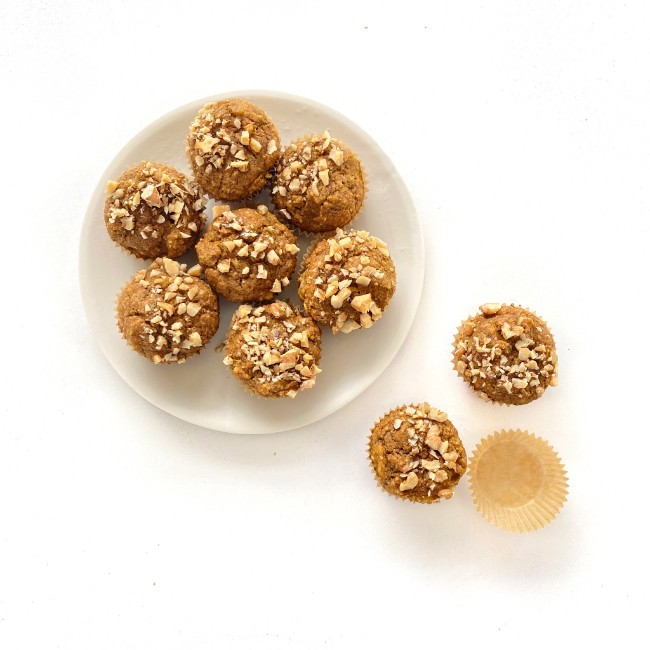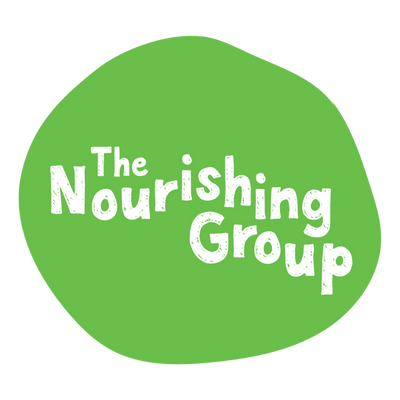Order CUT-OFF 11.45pm Tuesdays (Sydney time)! Second delivery day added for metro locations.
$66 MINIMUM APPLIES. FREE SHIPPING OVER $175.
NOW SHIPPING NATIONALLY!
Iron and Your Child: The Importance of Iron in Your Child's Development
Iron and Your Child: The Importance of Iron in Your Child's Development
Why is Iron Important for Your Child?
During pregnancy, the iron status of mothers should be carefully monitored to ensure they have adequate iron stores and intake to support both themselves and their growing baby's requirements in utero and up until the baby is six months old. If a mother follows a vegetarian or vegan diet or is generally low in dietary iron, a supplement or infusion will usually be prescribed to meet the increased requirements for this critical nutrient.
From the age of six months, the recommended iron intake for babies increases from 0.2mg/day to 11mg per day, so it is essential to introduce complementary foods to ensure babies can reach these substantially higher requirements. Iron deficiency and even anemia can result from a lack of iron, which can impede a child's growth and development and cause learning and behavioral issues.
Which Children Are Particularly at Risk of Iron Deficiency?
- Premature infants
- Low birth weight babies
- Infants under one who consume cow's or goat's milk
- Infants who are exclusively breastfed and are not given iron-rich supplementary diets
- Formula-fed babies who consume formula which is not iron-fortified
- Children with specific health issues, like persistent infections or dietary restrictions
- Children aged 1 to 5 who drink more than 500mL of cow's milk, goat's milk, or soy milk a day
- Children with poor dietary intake of iron-rich foods are particularly at risk of iron deficiency
Signs and Symptoms of Iron Deficiency
Many signs and symptoms of iron deficiency will not appear until iron deficiency anemia occurs. However, suppose your infant or child falls into any of the categories listed above, or you are concerned. In that case, you should talk to his or her doctor and consider a blood test and supplementation.
Iron deficiency symptoms and signs can include the following:
- Slow weight gain
- Pale skin
- Poor appetite
- Irritability
- Less physically active, lethargic
- Delayed development
- Behavioral problems
- Frequent infections or illness
- Unusual cravings for non-food items such as ice, dirt, paint, or starch (a condition known as pica)
- Impaired concentration or poor attention span
Preventing Iron Deficiency
There are a few vital steps you can take to help prevent iron deficiency in your child:
If your child is born pre-term, you should consider an iron supplement (this should be discussed with your pediatrician/doctor before commencing)
Avoid consuming calcium-containing foods such as cow's milk, yogurt, and cheese around the consumption of iron-rich meals, as calcium and iron compete for absorption.
Limit intake of milk in children aged 1 to 5 to no more than 500mL per day
Consume iron-rich foods with a source of Vitamin C, as vitamin C enhances iron absorption by up to 50%. While most fruit and vegetables are good sources of Vitamin C, capsicum, citrus fruits, tomatoes, dark leafy greens, and strawberries are all particularly good.
After six months of age, offer your child one iron-rich meal per day and gradually increase to two/three iron-rich meals per day by the time they are eight months old.
Iron-Rich Meals:
An iron-rich meal should contain at least one substantial source of iron. Sources of iron can be categorized into two key groups: haem and non-haem iron. Iron from most animal sources (haem iron) is generally more readily absorbed than iron from plant food sources (non-haem iron). However, both types of iron represent valuable sources and contribute to a child's overall iron intake. When consuming non-haem iron sources, it is vital to consume a source of vitamin C to enhance absorption.
Some examples of haem and non-haem iron sources are:
- Haem: beef liver, lean beef, skinless chicken breast (dark meat), skinless chicken light meat, pork, and salmon.
- Non-Haem: fortified rice cereal, red kidney beans, lima beans, tofu, egg yolk, dried apricots, dark leafy greens, and rolled oats.
Iron deficiency in children can be prevented by offering iron-rich foods at meals and snacks. Suppose you are concerned that your child is not consuming enough iron. In that case, it is recommended to make an appointment with a dietitian to review their diet.
References:
Better Health Channel. (2022). Iron deficiency - children. Retrieved from https://www.betterhealth.vic.gov.au/health/conditionsandtreatments/iron-deficiency-children.
Mayo Clinic. (2022). Iron deficiency. Retrieved from https://www.mayoclinic.org/diseases-conditions/iron-deficiency-anemia/symptoms-causes/syc-20355034.
National Health and Medical Research Council. (2017). Nutrient Reference Values for Australia and New Zealand: Summary Tables. Retrieved from https://www.nrv.gov.au/resources/nrv-summary-tables.
Royal Children's Hospital Melbourne. (2019). Clinical Practice Guidelines: Iron Deficiency. Retrieved from https://www.rch.org.au/clinicalguide/guideline_index/Iron_deficiency/.
Society of Obstetricians and Gynaecologists of Canada. (2017). Iron Needs of Babies and Children. Retrieved from https://www.caringforkids.cps.ca/handouts/iron_needs_of_babies_and_children.
Pumpkin & Banana Muffins
Rated 3.8 stars by 9 users
Category
Snacks
Breakfast
Servings
24 mini muffins
Prep Time
10 minutes
Cook Time
15 minutes
Author:
Nourishing Kitchen

Ingredients
1 cup wholemeal self-raising flour
1 tsp baking powder
1 tsp bicarb soda
1 tbsp Apple Cider Vinegar (ACV)
2 tsp cinnamon
1/4 cup maple syrup or honey (if older than 12 months)
1/4 cup coconut oil, melted
1/4 cup milk of your choice
1/4 cup pepitas, chopped or ground
1 tsp vanilla extract
-
4 x 25g Nourishing Bubs Pumpkin Puree
200g ripe mashed banana (1 large or 2 small bananas)
1/2 cup walnuts, finely chopped (optional)
Directions
Preheat oven to 180°C. Place patty pan liners in 24 mini muffin tins or 12 regular muffin tins.
Combine all dry ingredients in a medium bowl.
Combine Nourishing Bubs Pumpkin Puree, mashed banana, melted coconut oil, milk and vanilla extract in a small bowl and mix. Add to dry ingredients and mix until just combined.
Spoon mixture three-quarters of the way up patty liners. Sprinkle with chopped walnuts, if using.
Bake for 15 minutes (25 minutes for regular size) in preheated oven or until golden and a skewer comes out clean.
Recipe Note
*Leave nuts off for nut free
*Suitable from 10 months or when handling finger food
+Categories
- allergen
- allergen introduction
- antioxidants
- baby development
- baby hydration
- baby nutrition
- baby products
- baby recipe
- BLW
- breastfeeding
- calcium
- child nutrition
- Chocolate
- choking
- christmas
- christmas recipes
- constipation
- diarrhoea
- digestion
- easter
- feeding
- fibre
- finger food
- food allergy
- frozen baby food
- gagging
- health
- healthy eating
- holiday food ideas
- hydration
- infant nutrition
- iron
- iron defeciency
- kids health
- legume puree
- lifestyle
- meal portions
- minerals
- mum
- mum nutrition
- nourishing bubs
- nutrients
- nutrition
- Nutrition labels
- paediatric nutrition
- parenting
- pediatric nutrition
- pregnancy
- Protein Purees
- puree pouch
- reading baby food labels
- smoothies
- Sometimes foods
- Starting Solids
- summer
- toddler hydration
- toddler nutrition
- toddler recipe
- toddler snack
- vitamin B12
- vitamin deficiency
- vitamins
+Recent Articles
- Antioxidants Rich Foods for Bub: Why Antioxidants Matter for Growing Little Bodies
- Hydration for babies: Best ways to keep bub hydrated this Summer!
- Christmas Cooking with Bub: Fun & Safe Ways to Involve Toddlers in the Kitchen This Christmas
- Mindful Eating for Bub: Bringing Calm, Joy & Confidence to the Festive Season
- Fibre for Tiny Tummies: Helping Bub Stay Happy and Regular
- Can too much Vitamin A be harmful for bub? An easy guide to keep bub safe, happy and thriving.
- Are bub and I getting enough Vitamin B12?: A simple and easy guide with everything you need to know
- Boosting your little one's health with Zinc: What you must know
- The Ultimate Guide to Introducing Allergens: Tips for New Parents
- How to Read Baby Food Labels: A Parent’s Guide to Nutrition Panels and Ingredients Lists
Sign up for 10% OFF your first order. Plus we'll keep you up to date about new product launches, stockist alerts, new recipes & more...
© 2026 Nourishing Bubs.
Developed by Treble Digital




